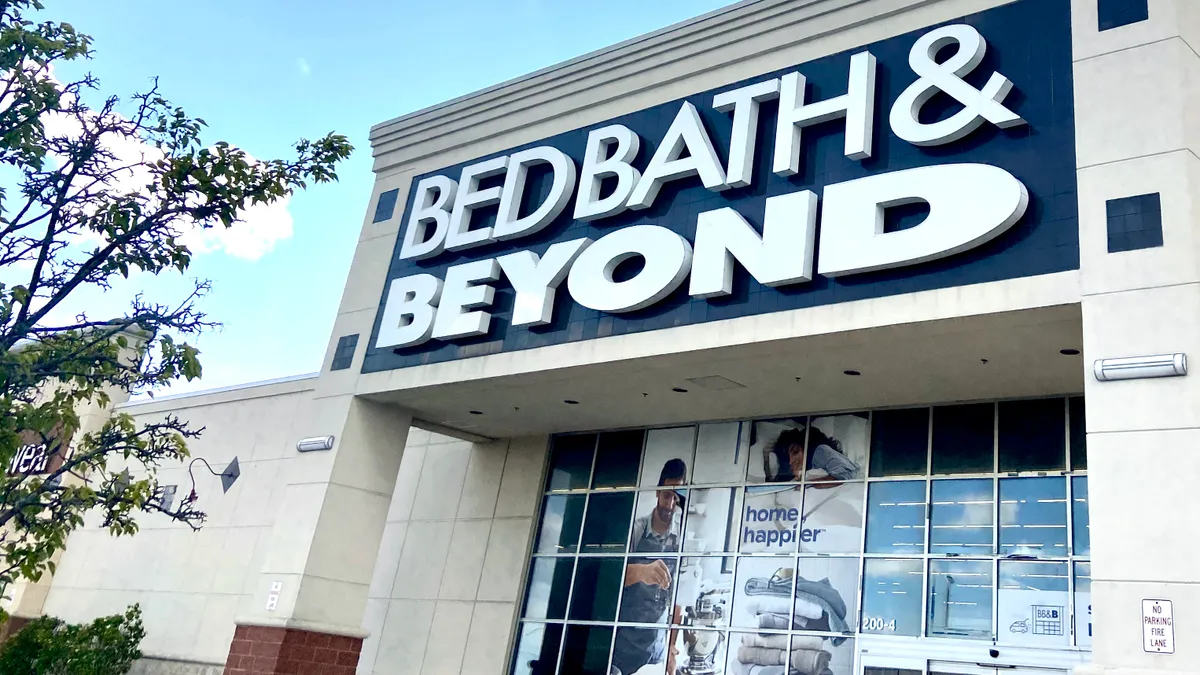Dive Brief:
- Beyond is finalizing an agreement with a large-scale reverse logistics and closeout company that will help its Overstock business' roster of vendors move product and handle returns, Executive Chairman Marcus Lemonis said on a July 30 earnings call.
- Beyond will allow the unnamed company to offer its product on Overstock.com and leverage the brand’s existing vendor relationships in exchange for "a very lucrative royalty," according to Lemonis.
- "We expect them to leverage the Overstock brand, the Overstock website, the Overstock vendor relationships and expect to be financially rewarded for our participation in that partnership," Lemonis said of the reverse logistics company. "There is a small investment that’s being contemplated in the form of debt that we will be providing to that company in a secured way."
Dive Insight:
Beyond is nearing the agreement after reopening Overstock.com this year with new inventory categories such as closeouts, liquidation, reverse logistics and factory direct products.
“As you visit the site today, it’s clear that we’re not just rebuilding legacy Overstock, but expanding the total offering into the vast white space that exists through categories including excess and distressed inventory,” Beyond President Dave Nielsen said in a July 18 news release.
Partnering with liquidation and reverse logistics companies to handle the physical movement of goods will help Overstock maintain its asset-light supply chain, Nielsen said on the earnings call. Through such a model, vendors can ship directly to customers from their own facilities rather than leveraging Overstock’s own assets.
"Getting access to a model of distressed merchandise in the local area, where we have built the technology to be able to drop-ship out of some of those locations, that when you don’t have to move the merchandise is where margin is very accretive for all of us," Nielsen said.
Boosting margins will help Beyond, which owns other brands like Bed Bath & Beyond and Zulily, on its path to profitability. The company increased its number of active customers and orders delivered in the second quarter, but it posted a net loss of $43 million.













